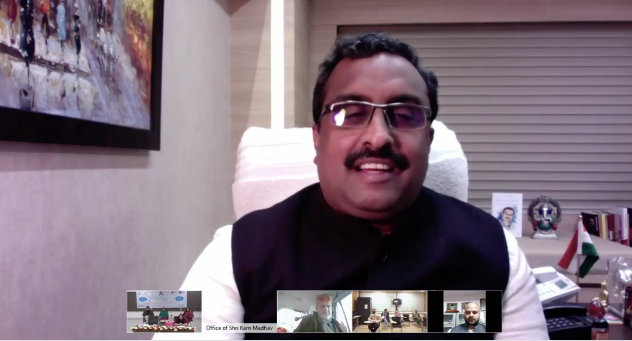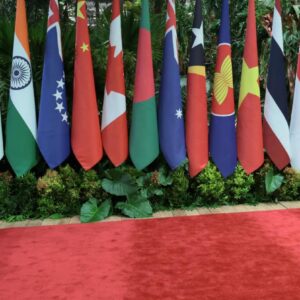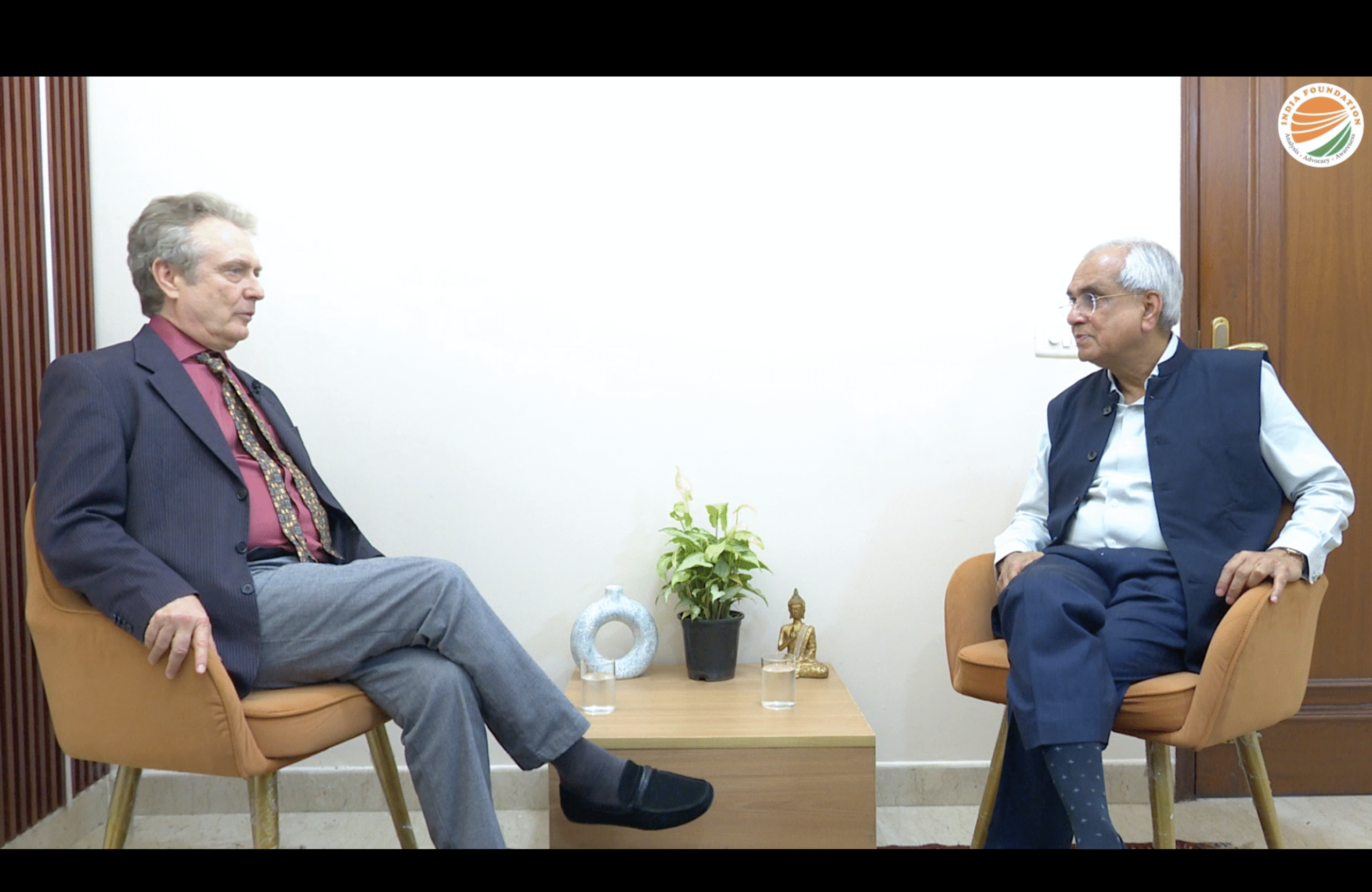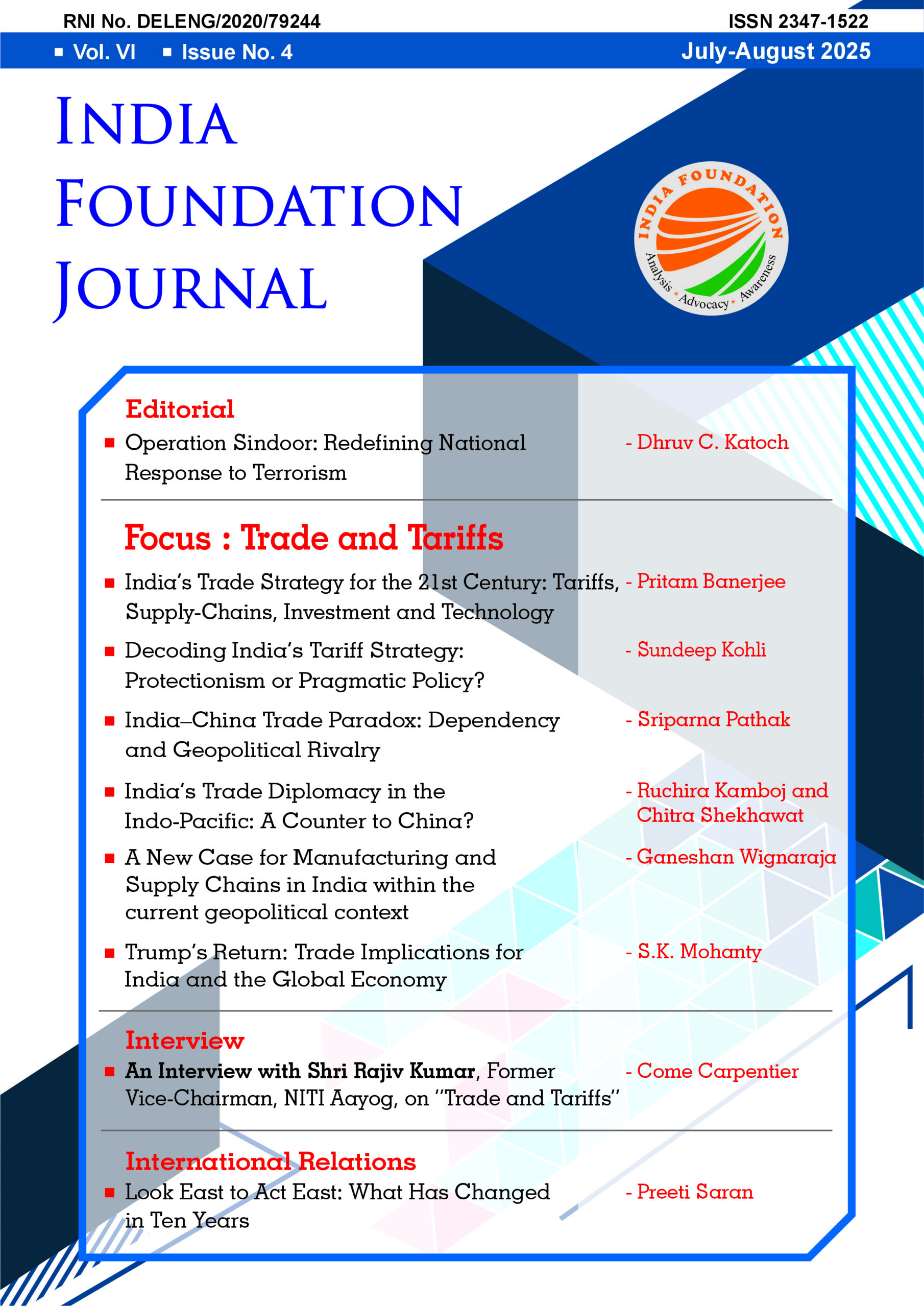India Foundation in collaboration with Panjab University (PU), Nottingham University and Nottingham Trent University, organised a three day online international conference from 1st to 3rd February 2021, titled ‘Ideology and Vision of Mahatma Gandhi: Global Relevance in the 21st Century’. The conference explored Gandhiji’s life and vision over four themes – sustainable living, education, sarvodaya and service of human society, and sarvadharma sambhava. The conference had 29 speakers and was attended by over hundred participants.
Day 1
Session 1: Inaugural
The inaugural session began with Prof. Anju Suri, Dean International Students PU, introducing the audience to the theme of the conference. Prof Raj Kumar, Vice Chancellor PU, highlighted the need to follow Mahatma Gandhi’s principles and apply them to today’s world. He also spoke of the pandemic and India’s efforts in producing a vaccine for Coronavirus and sharing the same with the world. This was followed by remarks from Prof. Cillian Ryan, Pro Vice Chancellor, International, Nottingham Trent University, who stressed how India’s recent education reforms exemplify Gandhiji’s teachings. Prof. Robert Mokaya, Pro Vice Chancellor, Global Engagement, University of Nottingham, spoke about the impact that Gandhi had throughout the world. In particular, he highlighted his own life growing up in Kenya in the 1970s and 1980s and how Gandhi’s ideas on the environment helped shape his own upbringing. As an anecdote he mentioned how Mahatma Gandhi visited the University of Nottingham to meet his nephew and also gave a lecture at The Great Hall in 1931. The university’s connection with Gandhi remains strong with many experts doing research on him, his teachings and comparative studies between Gandhi and other world leaders like Martin Luther King.
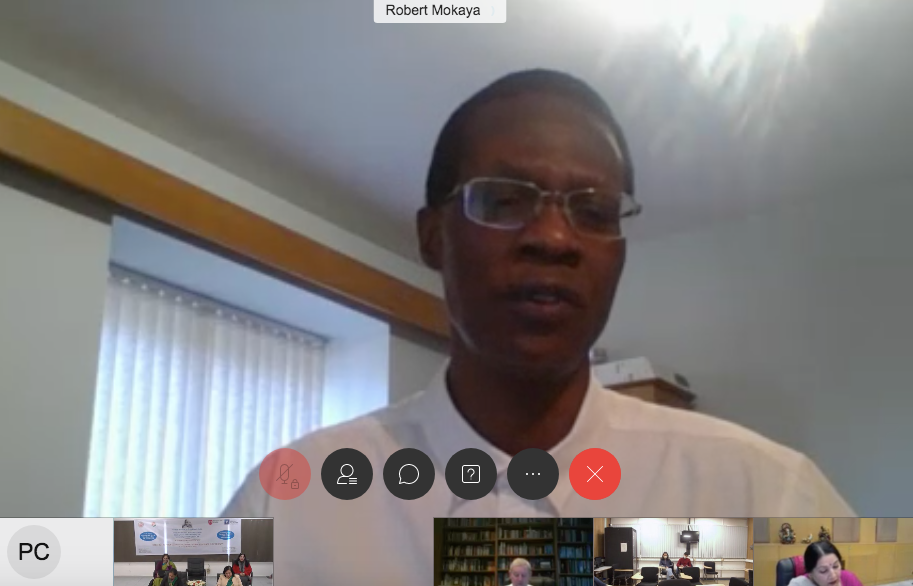
Prof Sunaina Singh, Vice Chancellor of Nalanda University spoke about how Gandhi continues to be a global icon of peace today. She focused on how Gandhi redefined history. In doing so, she focused on Gandhi, the man, and his inspirations. She quoted Martin Luther King who said that as long as humanity is alive, Gandhi will be relevant. Today we know him for his teachings on peace, ahimsa (non-violence), and equality among others. From Winston Churchill to Tolstoy to Einstein to Obama she explored the various ways in which Gandhiji was viewed from being “abhorred” to being an icon. She says such views existed because he was a rare person who practiced what he preached – his life was his message.
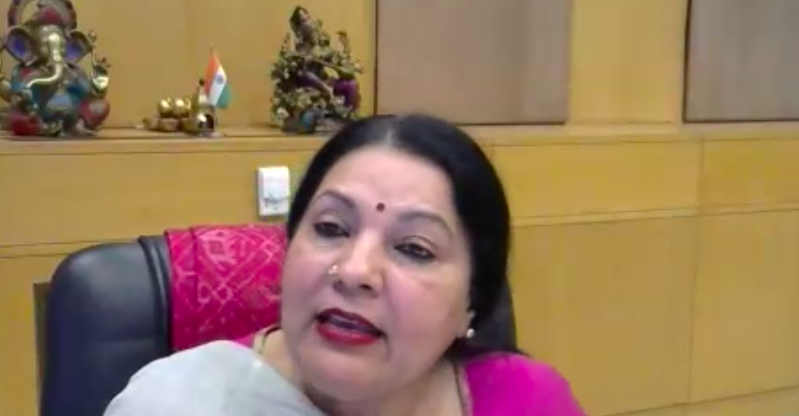
This session was moderated by Come Carpentier, Consultant, India Foundation and was attended by over 100 participants.
Session 2: Gandhi’s Ideology and Vision of Sustainable Living
This session began with Prof Sudarshan Iyengar, Former Vice-Chancellor, Gujarat Vidyapeeth, stating that Gandhiji is first and foremost a practitioner. With that introduction, he explored Gandhi’s thoughts on sustainability. He said that Gandhiji would perhaps not be pleased with the way urbanisation is taking place as he firmly believed in a decentralised and rural economy – swadeshi. The first principle of swadeshi is that every person has to behave morally (moral economics), the second that we must not over-consume. He said that producers must be honest – they must not exploit labour or resources, and consumers on their part must not be greedy, but should instead follow aparigraha (non-attachment). In such a system, there is both dignity of employment and participation of every person in the economy. He said that Gandhiji spoke about participative democracy and not representative democracy and that for Gandhi, economics was not an objective science but a subjective science.
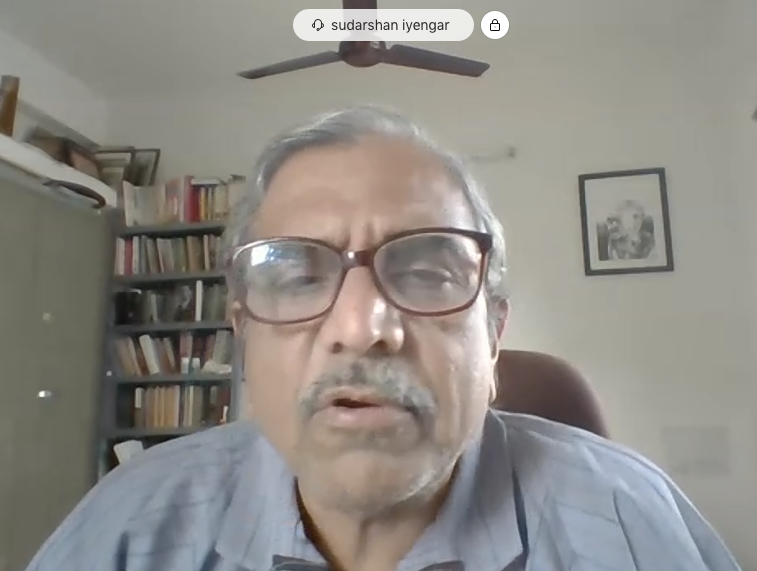
Shri Satyendra Tripathi, Director, Lokneeti India Foundation spoke about the present challenges that countries across the world are facing in terms of the environment and highlighted the issue of water availability. He said that countries are likely to fight over natural resources in the years to come and highlighted a UN report to that effect. He examined Gandhiji’s ideas of sustainability and village economy and self-reliance to tackle these issues, for example, model villages in Maharashtra. Finally, he mentioned the need for Indic thoughts to address the environment challenges we face.

Dr Glenn Williams, Principal Lecturer Psychology, School of Social Sciences, Nottingham Trent University began his lecture by taking us through his readings of Gandhi and Gandhi’s philosophy through a psychological lens by beginning with how Gandhi spent his life in South Africa and India. He provided an anecdote of his own times in South Africa when race was still a divider. One distinguishing feature of Gandhi was his ability to speak for people who were not able to voice their opinions. He connected Gandhi with the Sustainable Development Goals and argued that the UN has taken a lot from Gandhian philosophy including universality, diversity, ecological conscience, poverty etc. He stated that Gandhi was painfully aware of his own limitations and threw light on satyagraha. Gandhi’s ability to see things in a collective rather than individualistic way made for an easy transition from a micro to meso to macro-system, which was particularly useful in making sure the marginalised were included (or felt like they are). In conclusion, he spoke of the need to look at how we can encourage sustainable lifestyles and the need to ensure that technology is shared as far and wide as possible.
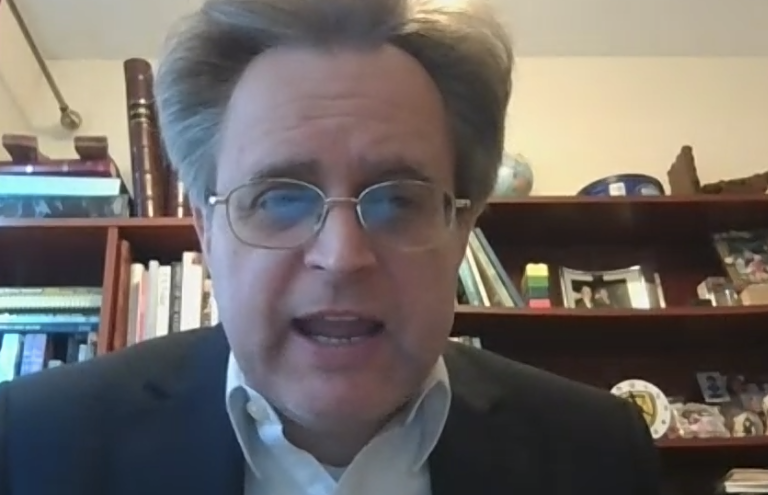
Dr Amrit Sagoo, Head of Department, School of Architectural Design and Built Environment, Nottingham Trent University spoke about the year 2020 and various natural disasters, particularly wildfires that the world faced. Can we harness technology to look after the environment? Can we produce buildings that are net zero? He spoke of the need to work within the environmental system to creature structures that last and conceive solutions for the wider system and stressed on the importance of the local system, the village system, in driving this change. Tying this with education he said that curricula needs to be designed to make education transformative, flexible and encourage students to think out of the box and make them employable. He concluded by saying that concepts like sustainable cities or smart cities are rooted in Gandhian ideology.
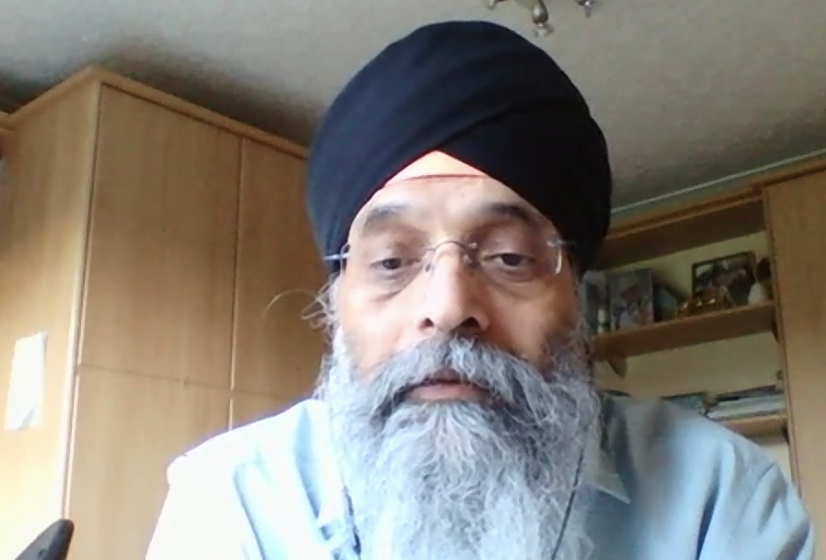
Dr Vijay Rana, a senior editor and journalist based in London spoke on the theme of khadi and village development. Gandhi presented his vision of village development in his book, ‘Hind Swaraj’. His experience of living in South Africa and India told him that urban, large cities are unsustainable. Instead, he believed strongly in the village economy and development beginning from the village. With the arrival of English cotton mills in India, the art of homespun khadi was dying. He believed strongly in the spinning wheel and how it could address the problem of idleness, bring supplementary income, reduce poverty and restore dignity. Gandhi would distribute spinning wheels to nearby villages and he began to wear pure khadi in an act of swadeshi. To say that Gandhi was against machine and industry is wrong – he himself wrote that industry, if it is pro-poor growth, is desirable. His idea of a village included houses with a courtyard to grow vegetables and rear cattle, roads that lead to a common meeting place, a primary and secondary school in which sustainable industrialisation would be taught. However, Nehru had a different outlook of development. For Gandhi, the village was the basic unit of development – from local to national – while for Nehru it was the opposite. Nehru thought of the picture of village as presented in Hind Swaraj to be unreal. Dr Vijay Rana argued that Nehru experimented with imported ideas and only paid lip service to Gandhi’s ideas. Perhaps this is where India’s development model faltered. As a result of the Congress’s neglect of village development, Dr Rana argued that although 60 percent of India’s population lives in villages they contribute less than 30 percent to the economy.
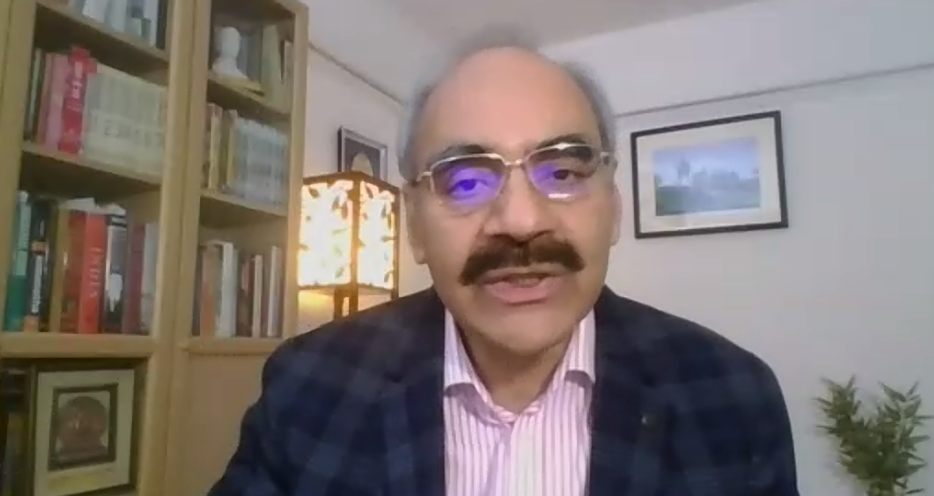
The session was followed by Q&A, was attended by 60 participants and moderated by Prof Anupama Sharma, PU.
Day 2
Session 3: Gandhi’s Education and Experiences – Relevance in Contemporary Times
Prof Kaushal Kumar Sharma, Director ICCR North Region spoke on nayee taleem on how it evolved through Mahatma Gandhi. He began by talking about the Vedic education system and said that we need to connect Indians to their roots. He highlighted how education in India is split between the State and Central Lists and spoke about how Gandhiji advocated for education to be taught in the mother tongue and how students must look beyond their books and learn from their local communities. Head, heart and hand are the three main elements of education. The 2020 National Education Policy he said, still needs to be elaborated and stressed the need to emphasize the Right to Education in this policy. However, stated that the NEP talks about Ananda which is in line with Gandhiji’s ideology.
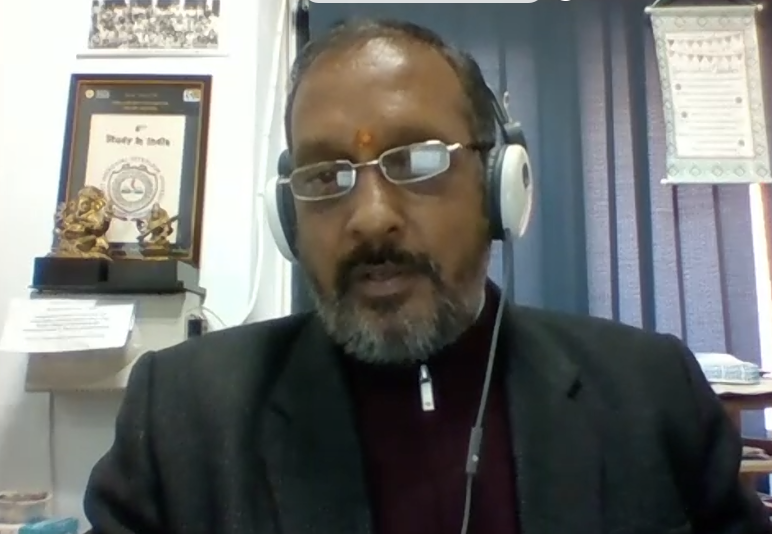
Prof Stephen Legg, School of Geography, University of Nottingham spoke on ‘Re-approaching Gandhi’s time in London in 1931: political and domestic spaces’. He says that today, Gandhi is remembered through a series of images such as Gandhi in Lancashire (where he visited factory workers) or in Kingsley Hall (where he stayed amongst the working class). By doing so, international media was able to highlight this unique characteristic of Gandhi of being at ease with the middle and working classes. He then focused his talk on the role of women during Gandhi’s trip to London in 1931 in orchestrating the space and making Gandhi’s home in London. Particularly in Kingsley Hall, where he wasn’t initially welcome, he was able to invoke from women such as Nancy Cox and Mildred Osterhout, a feeling of identity – they were not necessary over-awed by Gandhi but were able to identify with him and his teachings. Mirabehn, Sarojini Naidu were also at the Hall at the same time as Gandhi. Gandhi eventually moved to posh, central London to 88 Knightsbridge. However, there is not much written about this perhaps because it does not bode well with the image that Gandhi was trying to portray while in London. The speaker’s main argument was that to understand why Gandhi’s 1931 London visit was a success we must understand the role of personal spaces, his choice of location and that of the those around him to create an image for himself.

Prof Petra Molthan-Hill, Nottingham Trent University spoke on climate change education and what Gandhi would have done about climate change. She began by looking at the movement that Greta Thunberg started as a young school girl. Climate change is a real problem with visible effects on the whole world, yet only 20 percent of research on climate change focuses on the solutions to the problem, while 80 percent establishes the problem. Gandhi spoke about the negative effects of climate change, though not using the term explicitly. He did speak of protecting and caring for the environment.
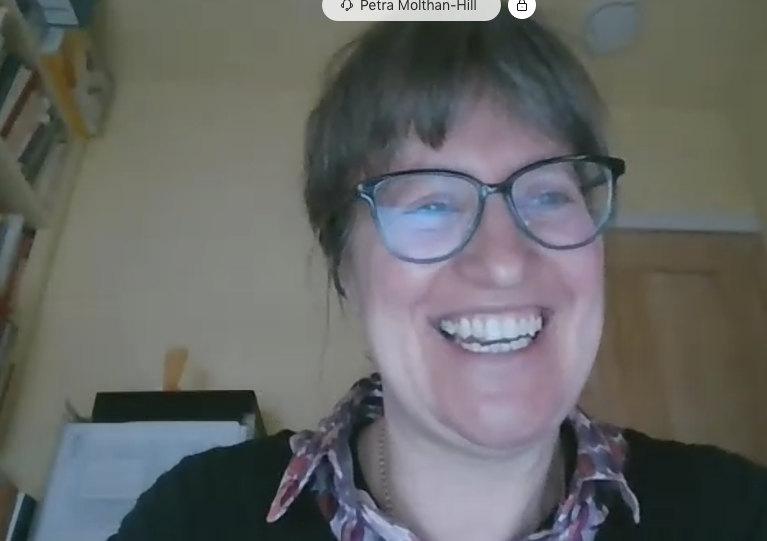
This session was followed by a Q&A, was attended by 67 participants and moderated by Dr Simrit Kahlon, Professor and Former Chairperson, Department of Geography, PU.
Session 4: Sarvodaya and Service of Human Society: Global Relevance Today
Lord Meghnad Desai, Professor Emeritus London School of Economics, spoke of Gandhi’s early years which led him from being an ordinary person to a Mahatma. Gandhi was the first in his family to go to college. Many aspects of Gandhi’s early life were highlighted such as Gandhiji’s reaction to his father’s death which portrayed his self-consciousness at such a young age; his student life in London University where he taught himself Latin – exemplifying his determination; and his search for Indian food which changed his life. In downtown London he joined a vegetarian society and eventually became a member of its Executive Committee. Unlike many Indian students who did not make contact with British life, Gandhi was different. He had the ability to make conversation with people to convey his idealism and the strength of his decision-making. Being a vegetarian gave him confidence in being an Indian, in being himself. He was comfortable in the fact that in London there was no difference between white people and himself. Interestingly, he suffered no racism while in England.
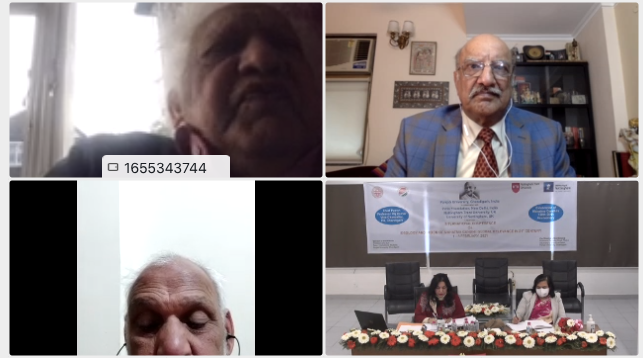
Prof. Rajavashisth Tripathi, Banaras Hindu University, spoke on Sarvodaya. He said that the sarvodaya movement did not go too far because of the way humans are constructed. He quoted Richard Dawkins and the selfish gene and says that it was the poor management of selfishness by western ways and means that is the main hindrance to promoting sarvodaya. What Gandhi advocated instead was to look into our ancient culture. Selfishness was not an acquired human trait, but was learnt. Our New Education Policy too has to respect the culture of India. In Hind Swaraj Gandhi himself says he is Hindu first and human last. The book also teaches how to conquer hatred with love. In conclusion he stated that we must manage our lives in tune with our culture.
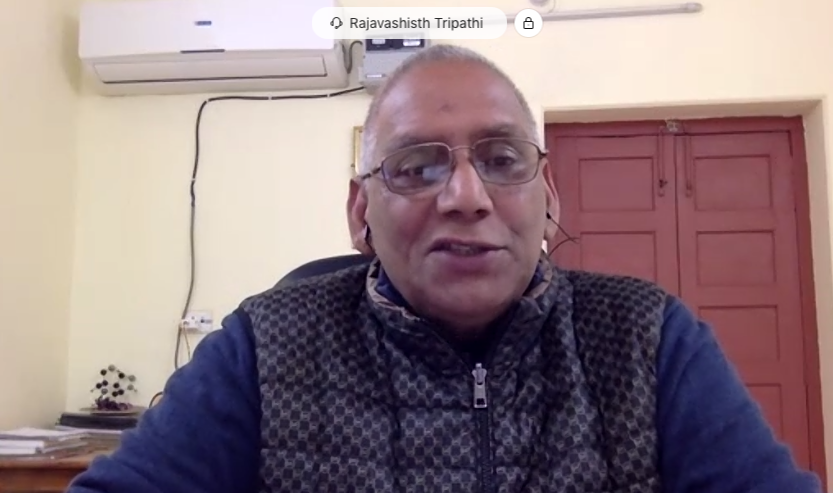
Dr Linda Gibson, Associate Professor, School of Social Science, Nottingham Trent University spoke on ethics and philosophy in partnerships. The West is very individualised and working with different cultures challenges the fabric of Western society. There is a need for the West to broaden their frames. Viewed through a health framework, she said that health is a social, economic and political process and rooted in social justice – working with the poorest in society. For partnerships to succeed we need mobility, knowledge exchange and social enterprise. Her talk was based on her experiences in Africa.

Prof Herbert Rosana, began his talk by quoting the UN which seems to have drawn its ideas of peace from Gandhi. He then spoke about how Gandhi was able to blend both Eastern and Western societies seamlessly. He compared Tolstoy’s ideas of peace with that of Gandhi’s and said that it is likely that Tolstoy became unpopular because he actively criticised the Church. Gandhi too, derived his ideas from Hinduism but was accepted as he did not criticise religion. He stressed the importance to be reflective and the need to even teach the military about peace, even if it seems contradictory. In conclusion, he spoke of moral transcendence which requires self reflection to see beyond ourselves.

Mr Sanjoy Singha, Secretary, Gandhi Smarak Nidhi explained the concept of sarvodaya and stressed the need for India to follow its principles. He said that if India needs a productive economy it needs to focus on its villages – the production hub of the country. Villages also allow for experiments therefore, the concept of sarvodaya can be implemented there.
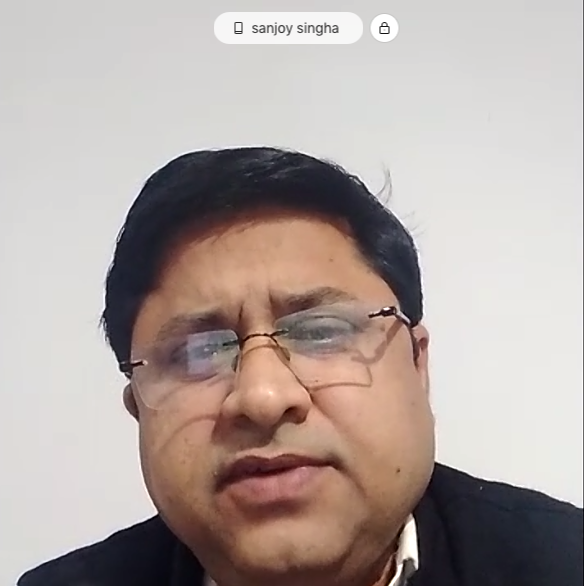
This session was followed by a Q&A, saw 65 participants and was moderated by Major General Dhruv Katoch, Director, India Foundation.
Day 3
Session 5: Gandhi’s Principle’s of Non-Violence, Tolerance and Pacifism
Christian Bartolf, President of Gandhi Information Centre, Germany, viewed Gandhi through the eyes of Aldous Huxley and spoke about how the right to life and the right to live are possible only if we perform our duties to the world. He said that peace is possible only when there are no extreme inequalities in the world. In a critique of Gandhi, under ‘What Gandhi Fails to See’ Huxley stated that Gandhi is nothing but a mere politician but in his Encyclopaedia, many years later revised his opinion and appreciated Gandhi’s satyagraha. Huxley was clear that the system to replace democracy had not yet been invented. Huxley was influenced by India. In 1926 he wrote of the decline of the British empire in India and was confident that it had able leaders like Sarojini Naidu and Mahatma Gandhi. In 1946 in ‘Science, Liberty and Peace’ Huxley describes Gandhi as an intensely practical politician and praised his economic thoughts on decentralisation.

Dr Sri Nuryanti, Research Centre for Political Studies, Indonesian Institute of Sciences spoke on the theme of Covid-19 and the test of humanity. Gandhi’s main argument was that health is “real wealth, not pieces of gold and silver”. She argued that due to Covid-19 more people believe in ‘health is wealth’. To give better access to health, Gandhi said we need social reform particularly in social welfare and equality prioritising the economy, rural industries, poverty alleviation and communal unity. She then compared the similarities between Gandhiji’s ideas to the Indonesian ideology of Pancasila – the five pillars of one God, social justice, democracy, unity of the nation and civilised humanity.
Dr P.V. Rajagopal, Gandhian Convenor, Parliament of the World’s Religions, Chicago stressed on the importance of having a big heart. He then spoke about how both Sardar Patel and Gandhi dreamt of an India that did not have any minority or majority communities but rather just Indians. Gandhi dreamt of a world without any intolerance, be it in caste, religion or colour. In the present day of globalisation, where it is assumed the world is one, he said it is unfortunate that intolerance and inequalities still exist. It is important to teach children non-violent communication – how to speak without provoking others. He also advocated having a Ministry for Peace, just like we have a Ministry for Defence. In line with this view he said it was also important to learn how to deal with conflicts in a peaceful manner at the international level.
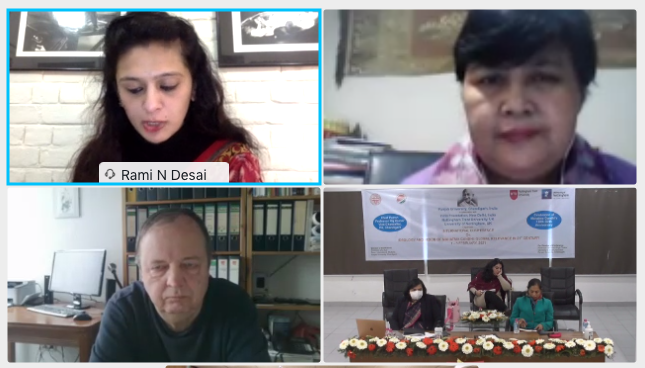
This session was followed by a panel discussion, saw 47 participants and was moderated by Rami Desai, Advisor, Centre for Public Diplomacy and Soft Power, India Foundation.
Session 6: Valedictory
Prof Raj Kumar, Vice-Chancellor, PU welcomed the guests and briefly elaborated on the life of Mahatma Gandhi. He stressed on the importance of Gandhi and asked that India continues to celebrate his life. Prof Cillian Ryan then thanked all the speakers and gave a short summary of the conference. He stressed that if there is anything to learn from Gandhiji it is intercultural understanding, and upliftment of the poor.
The Valedictory Address was delivered by Shri Ram Madhav, Member, Board of Governors, India Foundation who stressed that the question is not whether Gandhi is still relevant, but whether India is ready for Gandhi. He argued that India was not ready for Gandhi when it became independent for three reasons. Firstly, its partition was based on the concept that it was not one nation. It borrowed the idea of “we the people” from the American constitution, rather than “we the Indian nation” because as Ambedkar argued, India lacked national consciousness at the time. However, Gandhi believed in the truth of oneness and one nation. Secondly, when debating what form of government India was to adopt, Nehru argued that the best form of government was yet to be invented. When Gandhi was asked this question, he believed India should become a Ramrajya – a place where the voice of the voiceless also finds resonance in governance. If we were to become a Ramrajya the non-majority should also have a voice that needs to be heard. Third, for Gandhi, non-violence was not a political agenda but rather was the truth. This is one of the most important contributions of India to the world. Are we ready for this Gandhism? Where truth, non-violence and criticism is encouraged.
This session was moderated by Prof Rani Mehta, Chairperson, Department of Sociology, PU and attended by 87 participants.

